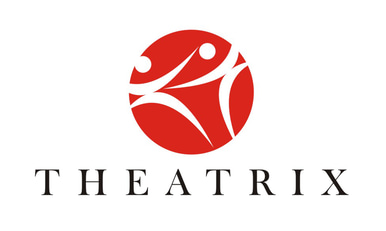THE THEATRIX LIFE SKILLS PROGRAM
Our flagship 3 year Integrated Program for Schools
Presenting our transformative 3-year program for children aged 13 to 15 (Grades 7 to 9), designed to empower them with essential life skills for holistic growth and all-round development. This program equips students to confidently navigate everyday challenges, prepares them for a promising future, and enables them to lead a successful and fulfilling life while unlocking their full potential.
What are Life Skills?
While hard skills refer to technical and academic skills, soft skills are a combination of several skills that help people navigate their environment, work well with others, enhance performance, and achieve their goals. These skills are acquired through exposure, experience and training. They include:
Communication Skills
Presentation Skills
Social Skills
Etiquettes and Manners
Interpersonal Skills
Critical Thinking
Creativity
Problem Solving
Team Building
Leadership Skills
Building Self Esteem
Conflict Management
Empathy
Goal Setting
Time Management
Self-Regulation
Stress Management
Motivation
Self-Discipline
Resilience
Motivation
Emotional Intelligence
Habits
Atitudes and Behaviours
Value setting
Why Drama as a teaching method?
Experiential Learning
Drama employs all five senses (sight, hearing, touch, speech and olfactory).
Accommodates different learning styles (visual, aural, kinaesthetic)
Engages mental, emotional and physical attributes
All this makes learning EXPERIENTIAL.
Drama Prepares Children to Deal with Life’s Problems.
Role-play gives children the opportunity to rehearse roles, characters and a broad spectrum of life situations, helping them to explore ideas and feelings. This allows children to make sense out of their ‘real’ life problems and helps them to learn about themselves and important coping mechanisms.
Builds confidence and self-esteem.
Develops creativity, speech, communication & presentation skills
Encourages expression of ideas and feelings.
Develops critical thinking, problem-solving and decision-making skills.
Encourages team work and co-operation; nurtures positive relationships.
Broadens minds and helps children understand the world around them.
Develops emotional intelligence and empathy.
Supports healthy minds and wellbeing.
Assists physical development.
Why Should a Child do The Theatrix Lifeskills Program?
Maximises a Child’s Potential
Drama employs tools that help children maximise their potential by identifying gaps and filling them.
Skills of The Future
Many jobs are being outsourced to artificial intelligence. Jobs relying on original thinking and soft skills will be the key differentiators in the workplace.
Good Interpersonal Skills
Having the ability to communicate better and resolve conflicts helps build meaningful relationships
Addresses Fears, Doubts and Negative Traits
Research ranks ‘Stage Fright’ as people’s biggest fear. Through constant encouragement and exposure, children can overcome their fears and build confidence that lasts a lifetime.
Helps Deal with Negative Emotions and Demands of Social Media
Children are susceptible to the ills of social media seeking instant gratification, peer approval and an escape into the virtual world.
This program encourages children to monitor their lives and adapt healthy coping mechanisms to battle loneliness, depression,
anxiety and peer pressure.
Character Building of Future Responsible Citizens
Through stories and role-play we nurture positive human values of honesty, compassion, integrity, respect and empathy leading to
the holistic development of every future citizen responsible for shaping the World we live in.
Drama is fun way to learn skills for life
The methodology enables a fun and criticism-free environment conducive for joyous learning as children attempt new things with a
sense of enthusiasm and adventure, without worrying about failure.
Drama Enables Self-Discovery
Children discover facets of their personality, their abilities, and preferences. Learning about individual strengths and weakness is
followed by reflection through which children develop into a more mature, emotionally responsible, and stable individuals.
Happier and More Fulfilling Life
Students learn to take ownership of their development resulting in faster progress and life-long growth.
Why should schools participate?
Formative years: Embedding behavioural training in the early years enables easy internalisation as they are more receptive and get longer guided coaching.
Conducive Environment: Socialization and relationship-building are a critical part of young lives, school is the perfect place to incorporate skill development through interaction. Also, children are encouraged to try different things in school without the fear of failure.
Unlearning later is more difficult: By adulthood, a person gets conditioned. Unlearning and re-learning is not only harder but also more time consuming.
Academic performance: When the child learns how to communicate clearly, he not only gains considerable confidence, but his academic performance also improves.
Preparation for Life: School is the fertile ground to shape young minds. It is the best period to mould children and train them to acquire the much sought after X factor that makes each individual stand apart from the rest.
What does the National Education Policy 2020 state?
The National Education Policy 2020 has acknowledged the importance of Soft Skill Development in schools and has recommended to make learning ‘Multi-disciplinary’ and ‘Experiential’. (Points 4.21, 4.26, 4.29, 4.44,11.1, 11.3, 11.7, 22.8, 23.8 of the NEP Policy Document)
